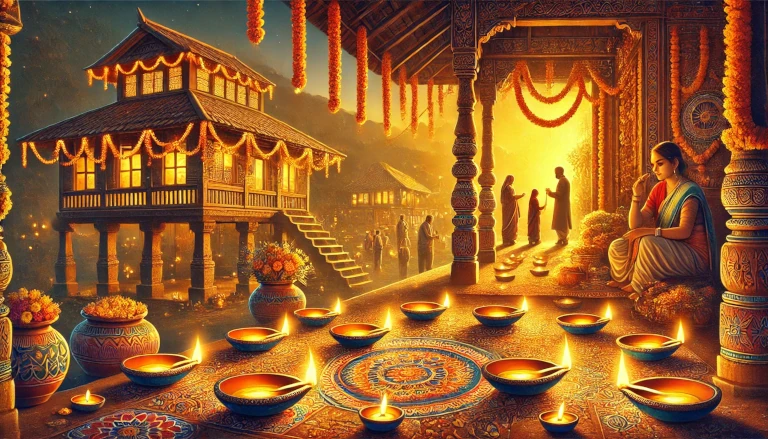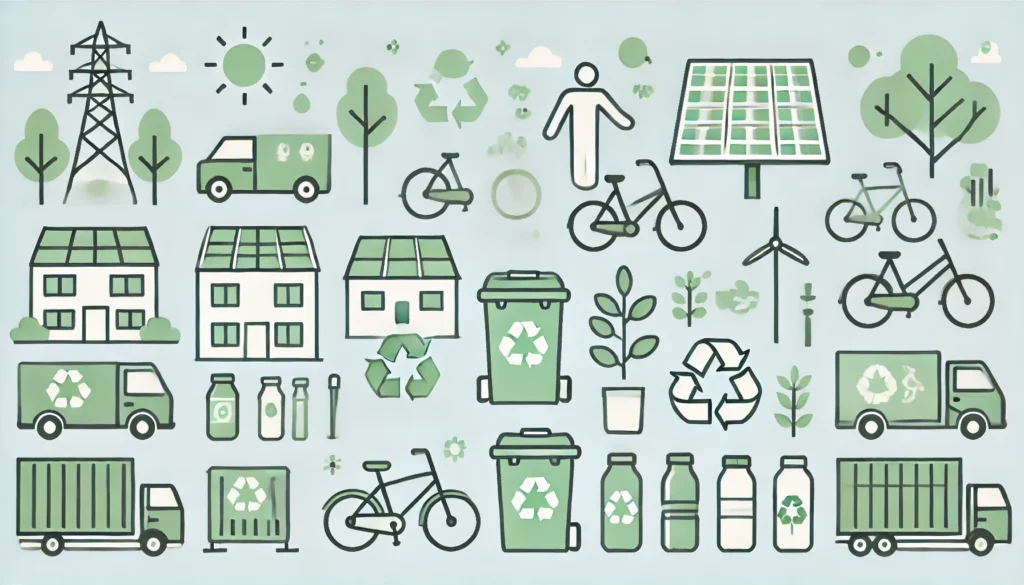Diwali, also known as the Festival of Lights, is one of the most celebrated festivals in India, marked by the lighting of lamps, bursting of firecrackers, and exchange of sweets. But beyond these vibrant traditions lies a deeper ancient wisdom that embodies spiritual, cultural, and environmental values. This festival is more than just a celebration; it’s a reflection of beliefs that have been passed down through generations, celebrating victory over darkness, good over evil, and knowledge over ignorance.
In this blog post, we’ll explore the ancient wisdom behind the celebration of Diwali, revealing its deeper meaning and timeless teachings.
The Spiritual Significance of Diwali 🌼
Diwali is steeped in spiritual symbolism, reminding people of the triumph of light over darkness and good over evil. This festival holds profound spiritual meanings that resonate with people of all ages.
1. Victory of Light Over Darkness 🕯️
Diwali symbolizes the victory of light over darkness, reflecting our inner battle between ignorance and enlightenment. By lighting lamps, people invoke positive energy and dispel negativity.
- Example: The lighting of diyas (oil lamps) in homes and temples signifies the triumph of knowledge over ignorance, encouraging us to pursue spiritual growth.
2. Celebration of Lord Rama’s Return to Ayodhya 🏰
In Hindu mythology, Diwali commemorates the return of Lord Rama to Ayodhya after 14 years of exile, during which he defeated the demon king Ravana. This story serves as a reminder of duty, loyalty, and the ultimate victory of good.
- Tip: Many people re-enact stories from the Ramayana during Diwali, preserving these moral teachings for future generations.
3. Welcoming Goddess Lakshmi 🪔
Diwali is also dedicated to Goddess Lakshmi, the goddess of wealth and prosperity. People clean and decorate their homes to welcome her blessings, reflecting the ancient belief in cleanliness and orderliness as a pathway to prosperity.
- Example: Performing Lakshmi Puja on Diwali night is a way to seek her blessings for financial and spiritual well-being.
Cultural and Social Wisdom of Diwali 🧑🤝🧑
Beyond its spiritual significance, Diwali also carries ancient wisdom that strengthens social bonds and fosters community well-being.
1. Renewal and New Beginnings 🌸
Diwali marks the beginning of the Hindu New Year in many regions, symbolizing new beginnings. The festival encourages people to reflect on the past year, let go of negativity, and set positive intentions for the future.
- Tip: Many people buy new clothes and renovate their homes as a symbol of renewal and starting afresh.
2. Strengthening Family and Community Ties 👨👩👧👦
Diwali is a time when families and friends come together to celebrate, exchange sweets, and share meals. This aspect of the festival emphasizes unity and togetherness, reinforcing the importance of strong social connections.
- Example: The tradition of exchanging gifts and sweets promotes goodwill and fosters a sense of community.
3. Encouraging Acts of Charity 🤲
The ancient wisdom of Diwali also includes acts of charity and sharing with those less fortunate. People donate food, clothes, and money to spread happiness and ensure everyone can partake in the celebrations.
- Tip: Many communities organize charity drives during Diwali, reminding people of the importance of generosity.
Environmental Wisdom in Diwali Traditions 🌍
While modern celebrations of Diwali often involve firecrackers, ancient traditions were more closely aligned with nature and environmental harmony.
1. Eco-Friendly Celebrations with Diyas and Natural Ingredients 🕯️
Traditionally, Diwali was celebrated with clay diyas and natural colors made from flowers and plants. This not only promoted eco-friendliness but also created a harmonious connection with nature.
- Example: Using earthen lamps instead of electric lights can reduce energy consumption and promote sustainability.
2. Use of Natural Decorations 🍃
In the past, Diwali decorations included rangolis made from rice flour, turmeric, and flower petals. These natural materials decompose easily and provide food for insects and birds, showcasing respect for the environment.
- Tip: Opting for natural decorations during Diwali is a simple way to honor the festival’s ancient eco-friendly traditions.
3. Celebrating the Harvest 🌾
Diwali aligns with the end of the harvest season, celebrating nature’s bounty and expressing gratitude for food and resources. This reflects a deep connection between agricultural cycles and cultural festivals, reminding people to respect and appreciate the land.
Practical Ways to Celebrate Diwali with Ancient Wisdom in Mind 🎆
To embrace the ancient wisdom of Diwali, here are some tips for a mindful celebration:
- Choose Eco-Friendly Diyas 🪔: Use clay lamps and natural oils for a traditional, environmentally-friendly celebration.
- Incorporate Natural Colors 🌸: Create rangolis with flower petals, turmeric, and rice flour instead of synthetic colors.
- Reflect on Personal Growth 🌅: Spend some quiet time in prayer or meditation, setting intentions for the coming year.
- Share and Give Back 🤲: Donate to local charities, share food, and offer support to those in need to spread the festival’s spirit of generosity.
Embracing the Ancient Wisdom of Diwali 🌟
Diwali is more than a festival of lights; it is a celebration of life, light, and ancient wisdom. By understanding the deeper meanings behind Diwali’s traditions, we can honor the festival’s legacy and make mindful choices that promote spiritual growth, social harmony, and environmental sustainability. As we light diyas and share sweets, let’s remember the timeless teachings that make Diwali a cherished and meaningful celebration.
Discover more from Green Ecosystem - Renewable Energy, Agriculture, and Environmental Sustainability
Subscribe to get the latest posts sent to your email.


